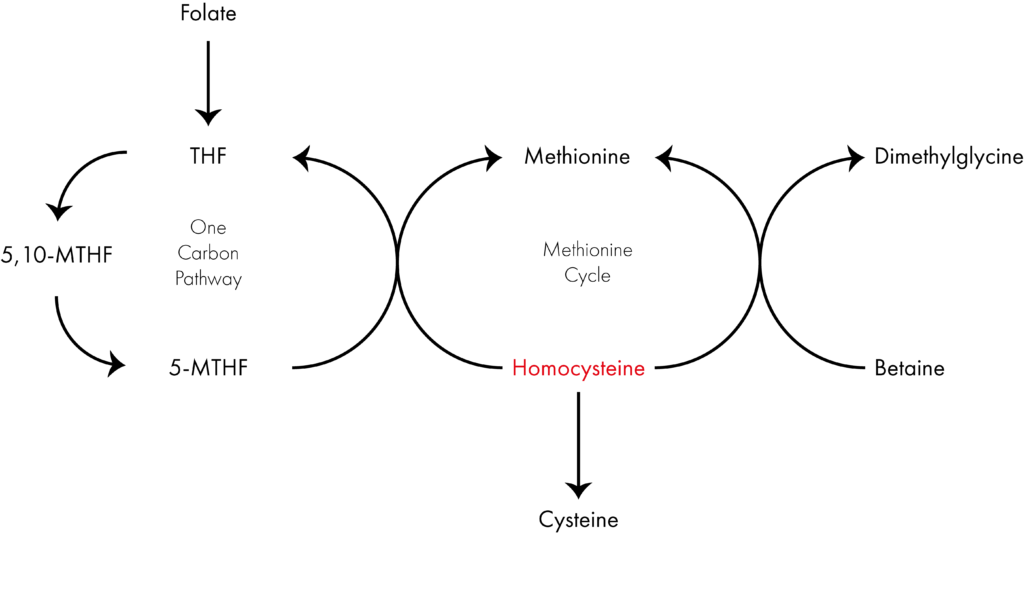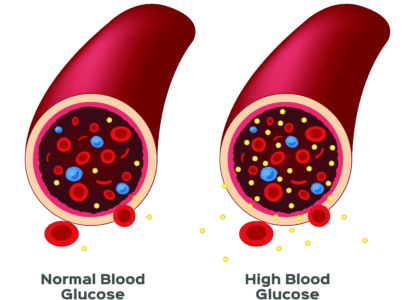How Much Should MTHFR Methylation Testing Cost? Is It Worth It?
Article at a Glance
- Genetic methylation testing offers essential insights into folate metabolism and the potential for elevated homocysteine.
- Methylation testing can predict predisposition for nutrient deficiency but can not identify current levels of micronutrients at the cellular level.
- Some labs, like Boston Heart Diagnostics, offer basic methylation testing that is covered by insurance.
- Methylation testing standing alone should not cost more than $100, but the process offers the most value when combined with other genetic reports that go beyond just methylation.
Genes Mentioned

Contents
We have been flooded with calls and emails from potential customers asking about our methylation testing and how it differs from what Gary Brecka and 10X Health offers.
The conversation usually goes like this.
Caller: Hi, I am calling about methylation testing. I heard about the tests through Gary Brecka, but I can’t believe how expensive those tests are. Do you offer the same tests?
Support rep: Yes, we get lots of calls and emails about the 10X test and methylation specifically. Our test covers all the genes in the 10X test, plus a lot more…
As John laid out in a dedicated blog post, the 10X Health methylation test looks at just five genes and is overpriced for what it offers. Perhaps more concerning are the bad reviews that are popping up on Trust Pilot from users who are dissatisfied with their 10X experience.
I am a fan of Gary Brecka’s content, but I feel like the methylation testing 10X offers should be overhauled to better serve consumers and protect our industry’s reputation. As someone who works in this space, I can tell you this – if you pay $599 for genetic testing, the company you order from has an obligation to offer more value than a simple rundown of just a few SNPs.
Companies like ours offer genetic methylation testing for $408, but the test results also cover diet and health comprehensively and evaluate sleep, LDL response, saturated fat metabolism, APOE, histamine, cholesterol absorption, uric acid, as well as many other reports. We also offer a basic two-week meal plan to get started with your Gene Food diet type.

Get Started With Personalized Nutrition
Gene Food uses a proprietary algorithm to divide people into one of twenty diet types based on genetics. We score for cholesterol and sterol hyperabsorption, MTHFR status, histamine clearance, carbohydrate tolerance, and more. Where do you fit?
Costs and how to run SNPs for free
Standing alone, methylation tests should never exceed $100, and as will explore later in this post, some insurance plans will pay for the testing. Further, if you already have raw data from a previous genetic test, it is likely you can search for your status for the SNPs listed in Gary Brecka’s test for free.
Here’s how.
Simply download a .txt copy of your data file and run a “command + F” search for the sIDs of the SNPs you are looking for. Then, match your result to the risk allele for that SNP. We list each of the Brecka SNPs in our Guide to Nutrigenomics so you can play along at home.
For example, the rsID for MTHFR C677T is rs1801133 and the risk allele is T. If you search your raw data file for rs1801133 with “command +F,” you will see your status for the most impactful SNP tested by 10X Health.
Genes that impact genetic methylation
Our methylation tests currently evaluate 15 SNPs across these genes:
- AHCY
- COMT
- MTR
- MTRR
- MTHFR
- DPEP1
- CBS
- MTHFD1
- SLC19A1
Can methylation testing uncover nutrient deficiency?
As with microbiome testing, there is a lot of confusion surrounding this issue, so let me clarify things in simple terms. Methylation tests analyze the one carbon pathway, a complicated biochemical process that metabolizes and utilizes folate at the cellular level.

Folate, or vitamin B9, is a necessary substrate for DNA repair and the conversion of amino acids, especially homocysteine, to methionine. When the body is less efficient at converting folate to its bioavailable form, this pathway can stall, and homocysteine levels can rise. This rise in homocysteine is the most scientifically validated problem that can arise from under-methylating.
Methylation testing does not uncover nutrient deficiency; it reveals potential predispositions for reduced ability to utilize folate and all the attendant downstream consequences.
Many of the people buying methylation tests to uncover what their bodies are deficient in are looking for a product like SpectraCell, which looks at the current state of your cellular levels of various micronutrients, as opposed to predispositions.
In our view at Gene Food, this does not mean that methylation testing is unnecessary as some in the blogosphere claim, just that influencers like Brecka have oversold the pathways linked to methylation, which leaves consumers confused.
Will insurance pay for methylation testing?
Ironically, it was the issue of methylation testing that got me into nutrigenomics eight years ago, just before starting Gene Food. Boston Heart Diagnostics, an advanced cardiovascular lab in Massachusetts, was the lab of choice for an endocrinologist who became my friend. Coming off of many years in New York City not taking care of myself, this physician nursed me back to health in sunny San Diego, and Boston Heart was one of the diagnostic tools he used to evaluate me.
Although the lab is known for advanced cardiovascular testing, Boston Heart also includes an MTHFR report called the MTHFR Genotype Test, which looks at the two most common MTHFR SNPs – A1298C and C677T. When I first saw the test, I was fascinated that micronutrients can impact how our genes work, effectively turning genes on and off.
I started the Guide to Nutrigenomics to catalog all of the genetic markers that can be affected by nutrition, and soon Gene Food was born as a startup.
Now, we have been vocal at Gene Food about the importance of polygenic risk scoring, which is the practice of evaluating several genetic markers to arrive at a risk score for a given trait.
At Gene Food, our methylation test currently evaluates 15 SNPs, while Boston Heart only looks at 2 SNPs.
However, I consider their MTHFR testing combined with their standard blood panel as the best option for those who want to undergo genetic methylation testing and have insurance pay for it.
Boston Heart overcomes the basic deficiency of only testing for two SNPs related to methylation with a built-in homocysteine lab that simultaneously gives the patient their homocysteine levels.
Why is this important?
The primary insight of methylation testing
Because fundamentally, the most important thing consumers can learn from a genetic methylation test is whether they are genetically prone to elevated homocysteine.
When present at elevated levels, homocysteine is associated with numerous poor health outcomes, including increased cardiovascular risk, increased risk of neurological disorders, poor bone health, and many other factors, including acting as a predictor for general health.
Homocysteine can be elevated for reasons unrelated to genetics. A genetic methylation test provides insight into how the body metabolizes folate, what the dietary and supplement needs are, and helps explain the why behind homocysteine lab results.
The functional medicine community, and Brecka in particular, likes to make laundry lists of symptoms and health conditions that arise from methylation issues. Still, at its core, this is a folate metabolism and homocysteine test.
For those who want to have the testing covered by insurance, and get a homocysteine blood panel in the process, Boston Heart Diagnostics is an excellent.
If your insurance plan doesn’t include advanced lab testing like the kind Boston Heart offers, Gene Food or Genetic Genie are two good options for getting a comprehensive, but sober, perspective on this important pathway.
Is genetic methylation testing worth it?
It can be worth it, but not at the $599 price point charged by 10X Health. Because genetic methylation testing involves sequencing your genome, a process that will reveal status for tens of thousands of SNPs, most consumers will want to combine methylation scoring with additional genetic insights.



